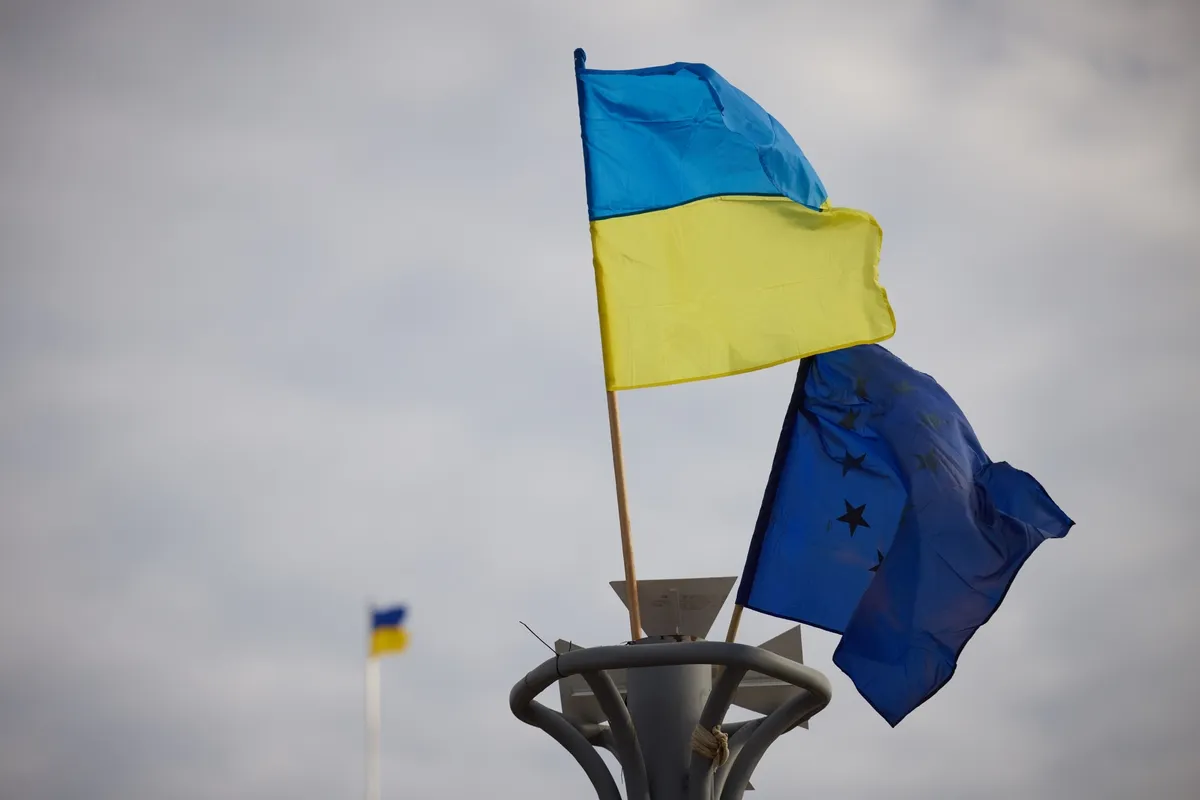This report from a correspondent in Ukraine updates the article “Time To Halt Kiev’s Flouting of Basic Freedoms and the ‘Rule of Law’,” which appeared in EIR of January 24, 2025.
Feb. 21—The world is slowly waking up and abandoning the propagandistic clichés about democracy in Ukraine. President Trump’s new team in the White House talks about the need for elections to be held in Ukraine and about ensuring freedom of speech in the mass media as a requirement for restoring the violated basic rights of Ukraine’s citizens. Sooner or later, these problems have to be dealt with, and an honest answer given about the nature of the regime in Ukraine. This is all the more pressing after Zelensky’s statements that he will remain President until Ukraine joins the EU and NATO, that elections are not held in wartime, and that if some Ukrainians don’t like the lack of elections, they should seek citizenship somewhere else.
Two additional basic principles of democracy should be recognized. The first is the ability for opposition political parties to operate without the threat of political repression or the physical elimination of their leaders, and the second is whether or not the system of justice adheres to the supremacy of law during litigation—whether citizens, and particularly politicians subjected to persecution and arbitrary actions by Ukrainian government agencies, have the right to a fair trial. Formally, the question is whether or not Articles 1, 3, 8, 55 and 59 of the Constitution of Ukraine are really guaranteed, and whether or not Ukraine adheres to the obligations it has assumed under international law, in particular those formulated in the European Convention on Human Rights and the International Covenant on Civil and Political Rights. Are the courts in Ukraine guided by these obligations and do they take into account European Court precedents in making their own rulings?
Without honestly and objectively answering these questions, a transition to peace and to Ukraine’s future as a lawful, democratic state is impossible.
A review of how opposition parties were banned may serve as an example, along with how those who were not imprisoned are harassed and persecuted by government agencies such as the Security Service of Ukraine (SBU), the Ministry of Justice of Ukraine, the National Agency for Corruption Prevention (NAZK), and the Prosecutor’s Office of Ukraine.
Here I would like to review a specific case: the current harassment of Dr. of Economic Sciences Natalia Vitrenko, an economist known not only within the country, but also abroad, who was a People’s Deputy of Ukraine (MP) is 1995-2002, a candidate for the presidency of Ukraine in 1999 and 2004, and leader of the opposition Progressive Socialist Party of Ukraine (PSPU).
How were the opposition parties banned in Ukraine? First, the National Security and Defense Council (SNBO), by a decision dated March 18, 2022 (and made without any court ruling!), accused 12 parties of “anti-Ukrainian” activity. The concept of “anti-Ukrainian activity” is not found in either the Criminal Code or the Administrative Code of Ukraine. But this public, extrajudicial accusation was massively repeated by the media.
The President of Ukraine, acting extrajudicially and outside the scope of his constitutional powers, as defined in Article 102 of the Constitution of Ukraine, then issued a decree to suspend the operations of these 12 parties. The Ministry of Justice of Ukraine was ordered by the President to file lawsuits for banning these opposition parties. The mass media, violating the presumption of innocence and before any court ruling, then labelled all these parties as charged, citing assertions made in Presidential Decree №153/2022, dated March 19, 2022. In an atmosphere shaped by this mass media coverage, and in violation of Ukraine’s international obligations and domestic legislation, the parties were found guilty by the courts and their operations were banned. This was a dramatic infraction of Articles 10 and 11 of the European Convention on Human Rights and of European Court rulings!
The trials took place in May through September of 2022. This was with violations of Ukraine’s obligations under Article 6, Paragraph 6 of the European Convention—the right to a fair trial. Ukraine’s system of judicial examination was changed, for the purpose of banning the parties. The 8th Administrative Appeals Court (in Lviv) was designated as the court of primary jurisdiction, while the court of appeal was the Supreme Court.



